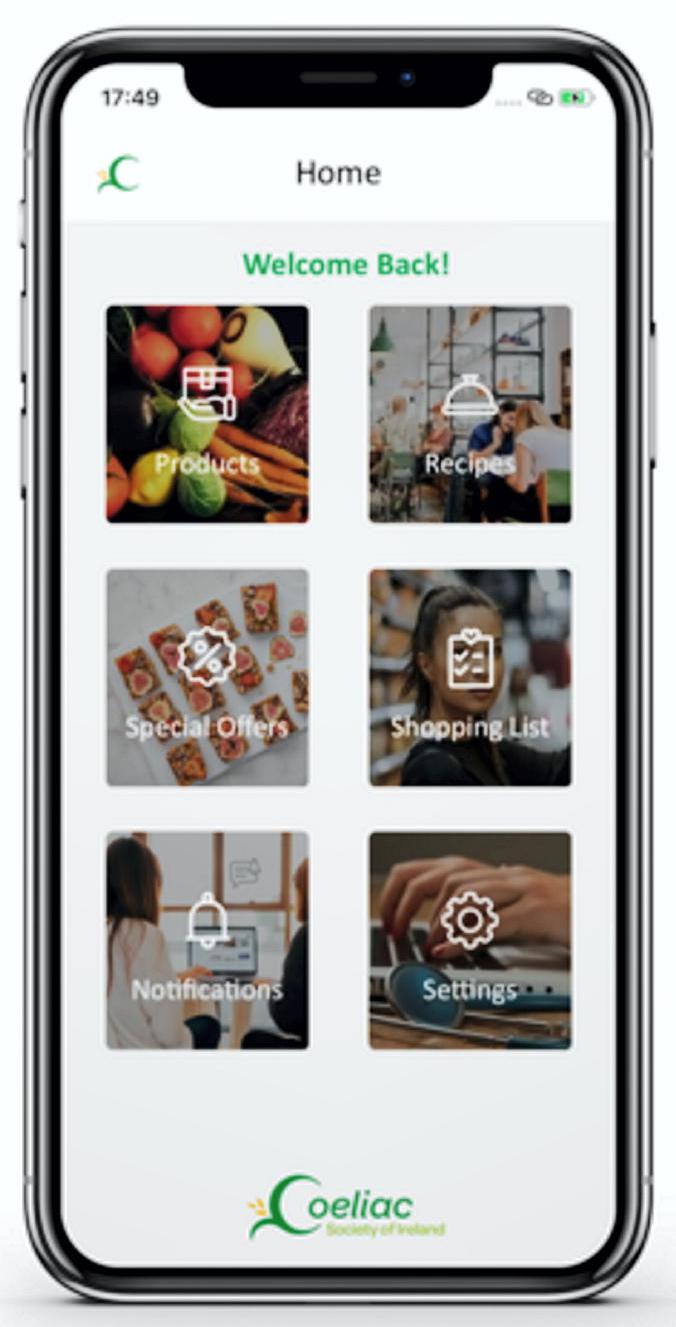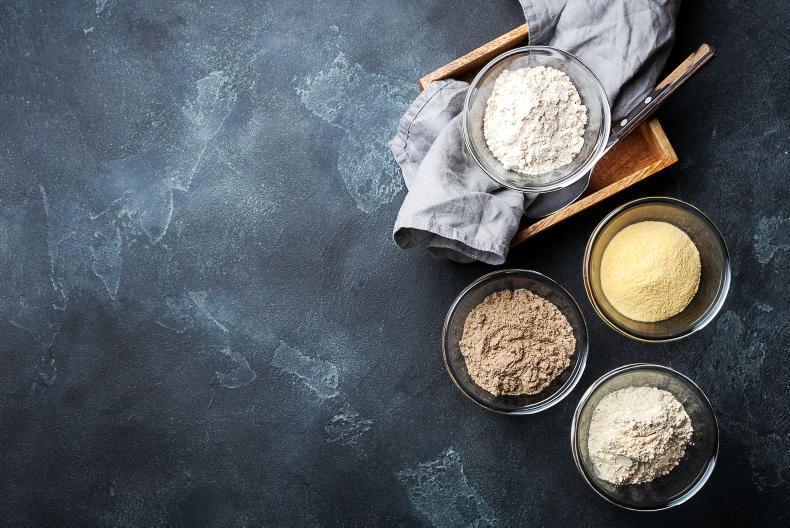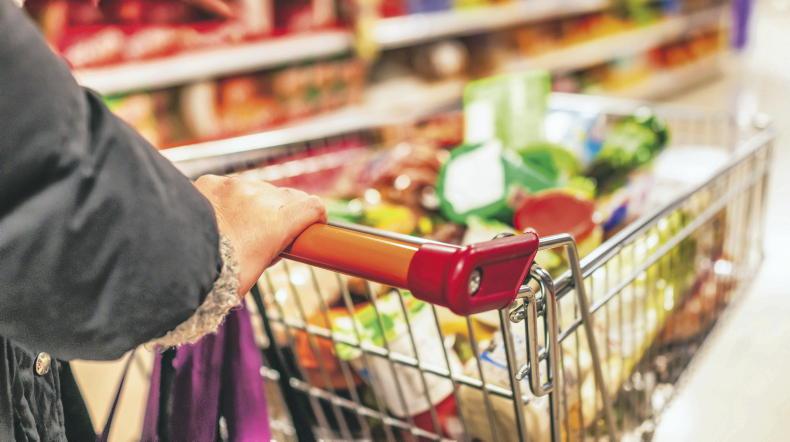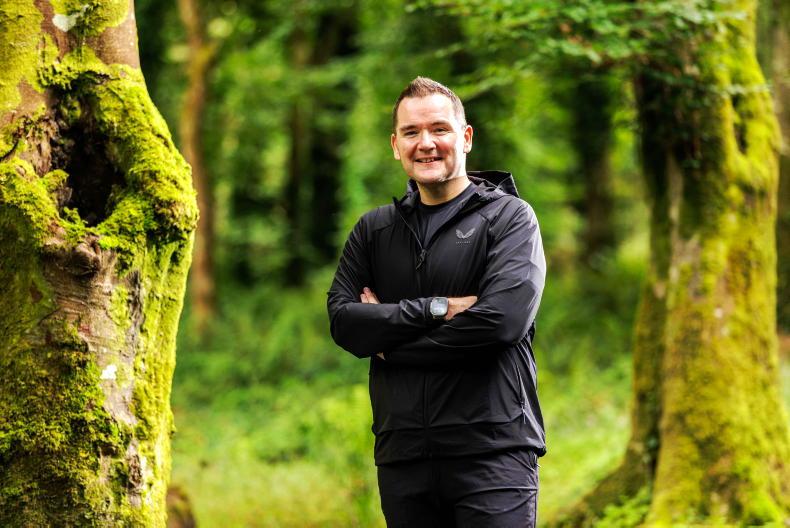“I actually drove from Dublin to Newry just to go to Sainsbury’s when they launched their gluten-free chicken nuggets.”
It feels like the coeliac version of Confessions of a Shopaholic as Emma Clarke Conway laughs at the memory.
“It was definitely a child deprivation thing but I just couldn’t wait to have a chicken nugget.”
Emma Clarke Conway was diagnosed as a coeliac when she was two years old and now in her 40s, she has seen firsthand – like many other people with coeliac disease – how the gluten-free market has grown.
This week, as awards co-ordinator, she is managing the judging of 600 gluten-free products at the Free From Awards. Now in its sixth year, the awards celebrate the best ‘free from’ products on the market.
This is just a snapshot of the amount of gluten-free products on the market. The Coeliac Society of Ireland have a database of nearly 8,000 gluten-free products in their ‘food list’. This is made up of over 450 brands. Compare this to the first edition of the list in 1977 when there was just 60 brands.
Emma says: “One area where there has definitely been positive change is artisan producers. You have the likes of Wellness Bakery in Limerick who have dedicated a small part of their factory to producing gluten-free bread, scones and biscuits. And Food of Athenry in Galway have a whole purpose-built factory for their gluten-free range.
“Then there are examples such as Miena’s Handmade Nougat in Wicklow where the nougat is a gluten-free product anyway, but she has put effort into getting her product certified and ensuring the labelling is correct which is extremely important.”
Other improvements
Other categories that have really improved in terms of both quality and choice is soups, poultry and crisps. “I remember a time when you couldn’t get a gluten-free soup in the supermarket and I know soup is easy to make, but like everyone, there are days when you need the quick and convenient option. Or if you are calling to a friend for lunch, you can say, ‘Look if you’re in Dunnes or Aldi, or wherever just pick up this brand of soup’ and I know it will be fine.”
The meat category is another area there has been improvements. “It’s not just the supermarket aisle, we’re also seeing a lot of butchers stocking gluten-free chicken kievs, goujons and nuggets.
“It’s great to have something in the freezer if you want something quick after a long day, but also little things like kids parties, you could serve gluten-free nuggets to all the kids at a party. They wouldn’t notice the difference in taste and the child with coeliac disease doesn’t feel excluded.
“There’s also a good selection of gluten free sausages and meatballs and the crisps category is a favourite amongst the judges.
Still a bit to go
So what needs improving? “Pizzas can be a bit hit-and-miss. In some categories [of the awards], we might award a gold and silver [medals]. In others, there could be a double gold, silver, bronze and a few merits.
“Other areas that would benefit consumers is clearer labelling. Labelling has improved significantly but there is still more work that needs to be done.
“For example, although oats are gluten free, approximately 5% of coeliacs are intolerant of them. So for example, oats may be used in a pizza base and the product is labelled ‘gluten free’, which technically is correct. However, a coeliac who is intolerant of oats might buy the product and then when they bring it home realise they cant eat it.
“Where oats are used, it would be helpful to have it very clearly labelled. Also, the awards really celebrate innovation. One area that is growing in the UK is ‘14 free’ – products that are free from all known 14 allergens. We are seeing a limited number of those products in Ireland but we expect it to grow.”
The ‘bible’
While the Free From Awards label on packaging helps consumers recognise high quality products when shopping, the food list produced every year by the Coeliac Society of Ireland is considered ‘the bible. It lists all the gluten-free products available on the market and this year, the food list became even more essential as it went digital.

Sarah Keogh, Coeliac Society in-house dietitian and nutrionist explains: “Earlier this year, the ‘Minding Me, Gluten Free’ app was launched and it includes the food list but things have stepped up a notch as it also includes a barcode scanner so when you’re shopping, you can scan the product and it will let you know straight away if it is gluten free.”
The app also contains nutritional information and advice and recipes but importantly, it contains alerts for consumers. For example, if a product has to be recalled users will be alerted on the app straightaway so they can avoid the product, and thereby, prevent themselves from being sick.
Sarah says: “Thankfully, since the app was launched in May, we haven’t had any product recalls but it’s an important element of the app. It allows us to break through the noise of flooded inboxes and social media feeds and have direct contact with people who must live gluten free for health reasons.”
So far, it has been downloaded by 1,800 users and has made life easier for those living with coeliac disease.
• Ireland has an estimated 50,000 coeliac sufferers and a further 400,000 individuals who have some form of gluten intolerance
• Eating even the tiniest amount of gluten can have a major effect on the health of people with coeliac disease and others who are gluten intolerant.
“I actually drove from Dublin to Newry just to go to Sainsbury’s when they launched their gluten-free chicken nuggets.”
It feels like the coeliac version of Confessions of a Shopaholic as Emma Clarke Conway laughs at the memory.
“It was definitely a child deprivation thing but I just couldn’t wait to have a chicken nugget.”
Emma Clarke Conway was diagnosed as a coeliac when she was two years old and now in her 40s, she has seen firsthand – like many other people with coeliac disease – how the gluten-free market has grown.
This week, as awards co-ordinator, she is managing the judging of 600 gluten-free products at the Free From Awards. Now in its sixth year, the awards celebrate the best ‘free from’ products on the market.
This is just a snapshot of the amount of gluten-free products on the market. The Coeliac Society of Ireland have a database of nearly 8,000 gluten-free products in their ‘food list’. This is made up of over 450 brands. Compare this to the first edition of the list in 1977 when there was just 60 brands.
Emma says: “One area where there has definitely been positive change is artisan producers. You have the likes of Wellness Bakery in Limerick who have dedicated a small part of their factory to producing gluten-free bread, scones and biscuits. And Food of Athenry in Galway have a whole purpose-built factory for their gluten-free range.
“Then there are examples such as Miena’s Handmade Nougat in Wicklow where the nougat is a gluten-free product anyway, but she has put effort into getting her product certified and ensuring the labelling is correct which is extremely important.”
Other improvements
Other categories that have really improved in terms of both quality and choice is soups, poultry and crisps. “I remember a time when you couldn’t get a gluten-free soup in the supermarket and I know soup is easy to make, but like everyone, there are days when you need the quick and convenient option. Or if you are calling to a friend for lunch, you can say, ‘Look if you’re in Dunnes or Aldi, or wherever just pick up this brand of soup’ and I know it will be fine.”
The meat category is another area there has been improvements. “It’s not just the supermarket aisle, we’re also seeing a lot of butchers stocking gluten-free chicken kievs, goujons and nuggets.
“It’s great to have something in the freezer if you want something quick after a long day, but also little things like kids parties, you could serve gluten-free nuggets to all the kids at a party. They wouldn’t notice the difference in taste and the child with coeliac disease doesn’t feel excluded.
“There’s also a good selection of gluten free sausages and meatballs and the crisps category is a favourite amongst the judges.
Still a bit to go
So what needs improving? “Pizzas can be a bit hit-and-miss. In some categories [of the awards], we might award a gold and silver [medals]. In others, there could be a double gold, silver, bronze and a few merits.
“Other areas that would benefit consumers is clearer labelling. Labelling has improved significantly but there is still more work that needs to be done.
“For example, although oats are gluten free, approximately 5% of coeliacs are intolerant of them. So for example, oats may be used in a pizza base and the product is labelled ‘gluten free’, which technically is correct. However, a coeliac who is intolerant of oats might buy the product and then when they bring it home realise they cant eat it.
“Where oats are used, it would be helpful to have it very clearly labelled. Also, the awards really celebrate innovation. One area that is growing in the UK is ‘14 free’ – products that are free from all known 14 allergens. We are seeing a limited number of those products in Ireland but we expect it to grow.”
The ‘bible’
While the Free From Awards label on packaging helps consumers recognise high quality products when shopping, the food list produced every year by the Coeliac Society of Ireland is considered ‘the bible. It lists all the gluten-free products available on the market and this year, the food list became even more essential as it went digital.

Sarah Keogh, Coeliac Society in-house dietitian and nutrionist explains: “Earlier this year, the ‘Minding Me, Gluten Free’ app was launched and it includes the food list but things have stepped up a notch as it also includes a barcode scanner so when you’re shopping, you can scan the product and it will let you know straight away if it is gluten free.”
The app also contains nutritional information and advice and recipes but importantly, it contains alerts for consumers. For example, if a product has to be recalled users will be alerted on the app straightaway so they can avoid the product, and thereby, prevent themselves from being sick.
Sarah says: “Thankfully, since the app was launched in May, we haven’t had any product recalls but it’s an important element of the app. It allows us to break through the noise of flooded inboxes and social media feeds and have direct contact with people who must live gluten free for health reasons.”
So far, it has been downloaded by 1,800 users and has made life easier for those living with coeliac disease.
• Ireland has an estimated 50,000 coeliac sufferers and a further 400,000 individuals who have some form of gluten intolerance
• Eating even the tiniest amount of gluten can have a major effect on the health of people with coeliac disease and others who are gluten intolerant.











SHARING OPTIONS